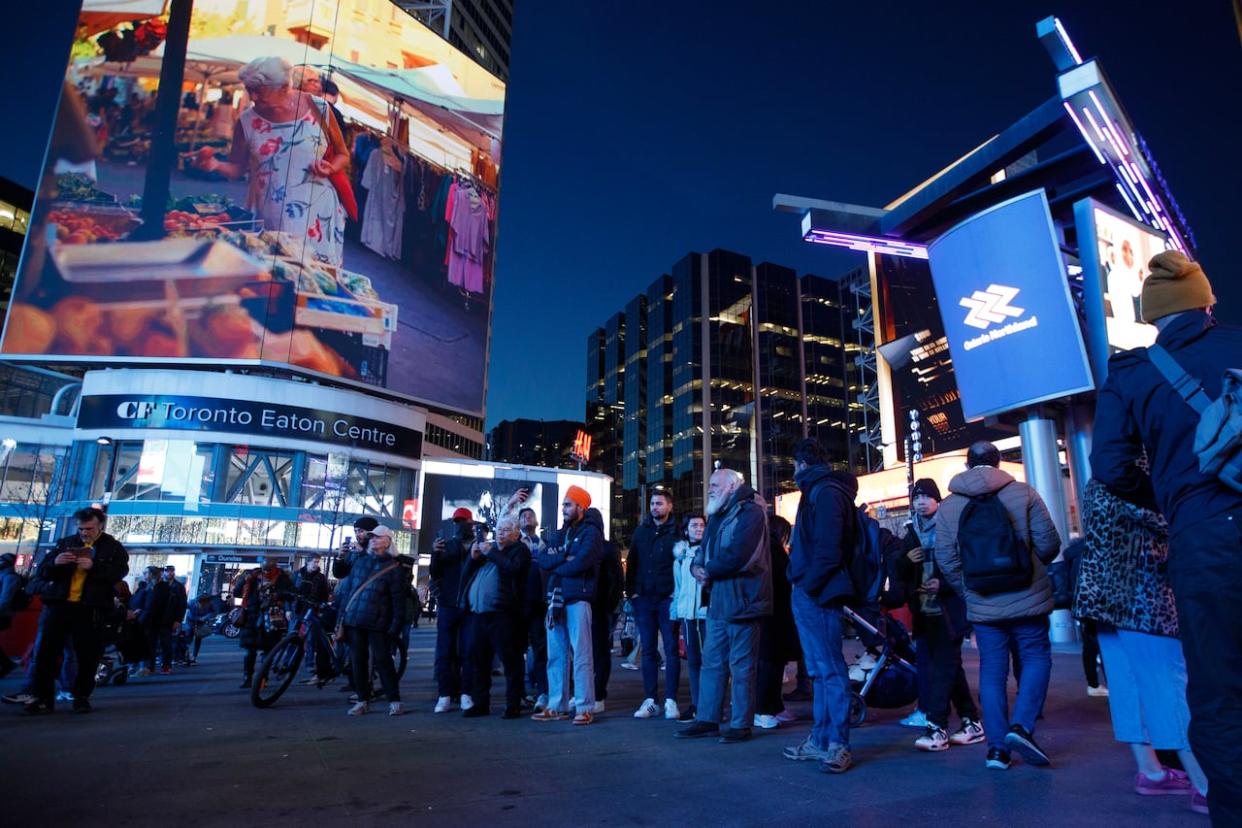2 officials resign from Yonge-Dundas Square management team after council changes name

Two members of the management board that runs Yonge-Dundas Square have resigned after Toronto city council voted to rename the public space downtown.
Michael Fenton, chair of the Yonge-Dundas Board of Management, and Jan Mollenhauer, vice chair, resigned on Wednesday. Council voted on Dec. 14 to change the name of Yonge-Dundas Square to Sankofa Square.
An advisory committee selected the new name for the public square on Dec. 12. The name change is an attempt by the city to strip landmarks of the Dundas name over Henry Dundas's reputed connections to the trans-Atlantic slave trade.
"I can confirm that both the Chair and Vice-Chair of the Yonge-Dundas Board of Management have resigned over their concerns around governance on a number of matters, along with lack of public and board consultation by the city," Julian Sleath, general manager of the board, said in an email on Thursday.
"They are fully supportive of the name change and the work of the Community Advisory Committee on the Renaming of Dundas Street — that is not the reason."
Sleath declined to release the resignation letters, which he said were addressed to the chair of the civic appointments committee.
One city councillor, Coun. Dianne Saxe, is also criticizing the move not to consult the wider public. She said public consultation is a prerequisite for "legitimate" public decisions. She said the process was bad.
"This was a decision that was made without the consultation that the public was promised, and frankly, without consultation with council," Saxe said on Thursday.
Saxe, however, voted in favour of the renaming.
Mayor Olivia Chow defended the name change on Wednesday, saying the move wasn't rushed.
"There have been 19 meetings. My goodness, that's, you know, at some point, you can process and process everything, but you need to make a decision," Chow said. "If not, we just go around and around."
In a news release, the city said: "The concept of Sankofa, originating in Ghana, refers to the act of reflecting on and reclaiming teachings from the past, which enables people to move forward together. This new name reflects the city's commitment to taking steps to right wrongs, confront anti-Black racism and build a more inclusive Toronto for all."
Melanie Newton, co-chair of the committee that chose the new name, said public consultation was a large part of the decision.
"We had considered names that were submitted by the public," she said. "I believe there was a lot of public conversation about the broader recognition review process that the city undertook. That's been going on for two years."
Dundas, a Scottish politician, was active from the 1770s to the early 1800s, when the British Parliament was debating slavery abolition motions. Dundas Street, among other landmarks, are named after him.
Dundas introduced a motion to stall abolition, but there has been some debate about his intentions. While he has been criticized as attempting to prolong slavery, one descendent of Dundas, Bobby Dundas, has argued he was trying to be strategic with his "gradual abolition" motion.
On Dec. 14, council decided to to rename four major city assets: Yonge-Dundas Square, Dundas and Dundas West subway stations and the Jane/Dundas Public Library.
In June 2020, council received a petition signed by 14,000 people calling for Dundas Street to be renamed.
City council voted in July 2021 to rename the street but decided not to move ahead because of concerns over cost, instead opting to rename other landmarks. The city has estimated the cost of renaming four civic assets and a public education campaign around the changes to be about $2.7 million over two years.


